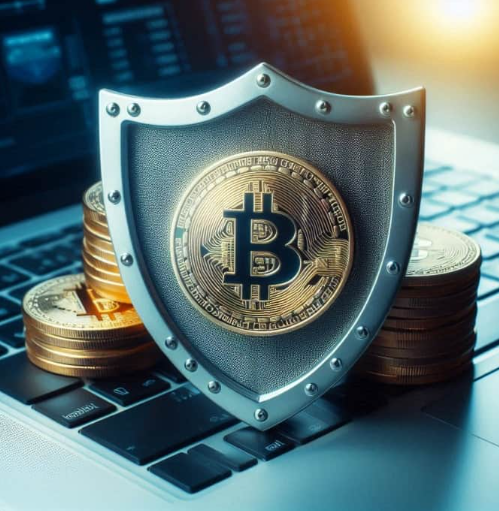When it comes to cryptocurrencies, one of the most crucial aspects of transaction security is the concept of confirmations. Whether you’re sending Bitcoin, using Ethereum, or accepting payments in digital currency, understanding how confirmations work is essential for ensuring that your transactions are legitimate and secure. In this post, we’ll break down what crypto transaction confirmations are, why they matter, and how many confirmations are typically needed for different blockchains.
What Are Crypto Transaction Confirmations?
In the world of cryptocurrency, once a transaction is initiated, it is broadcast to a decentralized network for validation. A confirmation occurs when this transaction is included in a block, and the block is added to the blockchain. Each subsequent block added after the transaction provides an additional confirmation.
The more confirmations a transaction has, the harder it becomes to reverse, and the more secure it is considered to be. Each confirmation signals to the network that the transaction is valid and has not been tampered with.
Why Are Confirmations Important?
Confirmations play a crucial role in ensuring the integrity of transactions. In a decentralized network, they serve to:
- Verify Transactions: Confirmations confirm that the sender has the necessary funds and that the cryptocurrency has not been spent elsewhere.
- Enhance Security: Multiple confirmations reduce the risk of a transaction being reversed due to network reorganizations or malicious attacks.
- Achieve Consensus: They ensure that all nodes on the blockchain network agree on the validity of the transaction.
Without confirmations, transactions remain pending and are not considered finalized or secure.
How Many Confirmations Are Required?
The number of confirmations needed for a transaction to be considered final varies by blockchain and transaction value. Here’s a quick overview of the standard confirmation requirements for several popular cryptocurrencies:
- Bitcoin (BTC):
- 1 confirmation: Often sufficient for small transactions between trusted parties.
- 3-6 confirmations: Common for medium-to-large transactions.
- 6+ confirmations: Considered final for large transactions, as it provides strong security against chain reorganizations.
- Ethereum (ETH):
- 12 confirmations: Typically considered secure due to Ethereum’s faster block time (about 15 seconds per block).
- Solana (SOL):
- 1-2 confirmations: Solana’s high transaction speed requires fewer confirmations, typically completed in seconds.
- Litecoin (LTC):
- 6 confirmations: Similar to Bitcoin, ensuring finality for Litecoin transactions.
- Binance Smart Chain (BSC):
- 15 confirmations: Given BSC’s block time of 3 seconds, 15 confirmations are typically sufficient for security.
For less popular or newer cryptocurrencies, confirmation requirements can vary, with some platforms setting their own thresholds based on the perceived security of the network.
What Affects the Number of Confirmations?
Several factors influence how many confirmations are needed for a transaction:
- Blockchain Network: Different blockchains have varying speeds and security protocols, which impact confirmation requirements.
- Transaction Value: Larger transactions typically require more confirmations to ensure greater security.
- Platform Policies: Different exchanges or platforms may have specific rules regarding confirmation thresholds.
- Network Activity: High congestion on a blockchain can lead to delays, and more confirmations may be needed for security.
- Security Concerns: High-risk transactions may require extra confirmations to prevent issues like double-spending.
How Long Does Each Confirmation Take?
The time needed for a confirmation depends on the blockchain’s block time, which is the interval between the addition of new blocks. Here are some typical times for different blockchains:
- Bitcoin: 10 minutes per block, so 6 confirmations take about 60 minutes.
- Ethereum: Around 15 seconds per block, so 12 confirmations take about 2-3 minutes.
- Litecoin: Approximately 2.5 minutes per block, so 6 confirmations take about 15 minutes.
- Solana: Around 400 milliseconds per block, making transactions nearly instant.
These times can fluctuate depending on network congestion, hash rates, and other factors.
When Is a Transaction Final?
A transaction is considered final once it becomes virtually impossible to reverse. This largely depends on the number of confirmations and the blockchain’s susceptibility to reorganization.
- In Bitcoin, after 6 confirmations, the chances of reversal are almost nonexistent.
- For faster blockchains like Solana or Binance Smart Chain, just 1-2 confirmations can be sufficient due to their high transaction throughput and consensus mechanisms.
How to Check the Number of Confirmations
You can track the confirmation status of your transaction through most cryptocurrency wallets or exchanges. Additionally, you can use a blockchain explorer for specific cryptocurrencies to check transaction details, including confirmation count. Popular explorers include:
- Bitcoin: Blockchain.com
- Ethereum: Etherscan
- Solana: SolScan
- Binance Smart Chain: BscScan
By entering the transaction hash (TXID), you can quickly see the number of confirmations, block details, and other relevant information.
What Happens if a Transaction Has Zero Confirmations?
A transaction with zero confirmations means that it has been broadcast to the network but hasn’t yet been included in a block. In this state, the transaction is still pending and could potentially be invalidated, especially in cases of network congestion or insufficient fees.
For security, it’s important to wait for the required number of confirmations as set by the platform or recipient before considering the transaction final.
Key Takeaways for Crypto Users
- Know the Confirmation Requirements: Different blockchains and platforms have varying standards for how many confirmations are needed for finality.
- Account for Transaction Value: Larger transactions typically require more confirmations for additional security.
- Track Transactions: Use blockchain explorers or your wallet to monitor your transactions and check their confirmation status.
- Be Prepared for Delays: During busy times, network congestion can lead to longer confirmation times.
Conclusion
Crypto transaction confirmations are an essential part of maintaining the integrity and security of blockchain transactions. By understanding how confirmations work, how many are required, and how to track them, you can make more informed decisions and ensure your transactions are secure. Whether you’re a casual user or an investor, understanding confirmations is key to navigating the cryptocurrency world with confidence.













